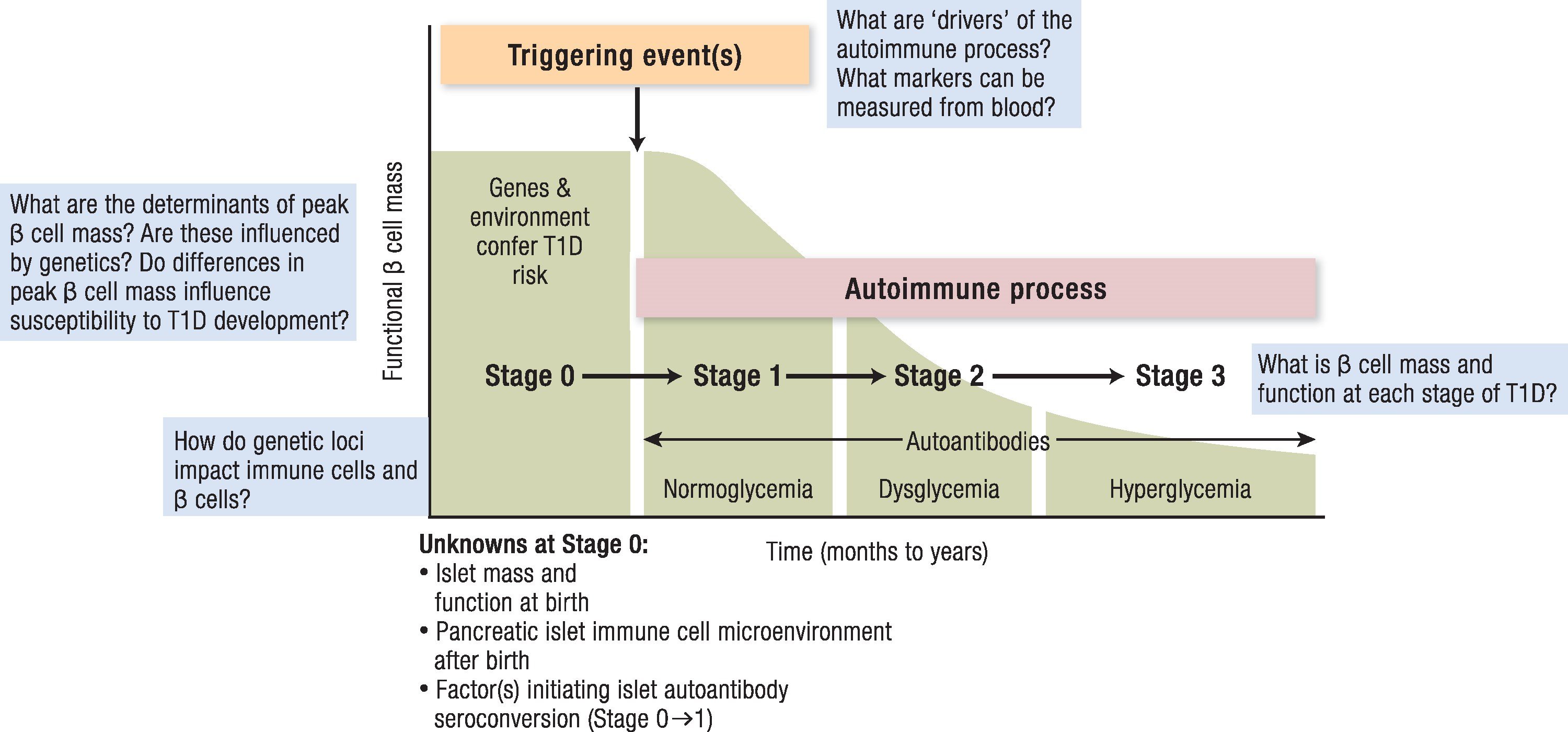Full Statement: Challenges and Opportunities for Understanding the Pathogenesis of Type 1 Diabetes: An Endocrine Society Scientific Statement
The Journal of Clinical Endocrinology & Metabolism, Volume 110, Issue 9, September 2025
Aaron W Michels, Todd M Brusko, Carmella Evans-Molina, Dirk Homann, Sarah J Richardson, Alvin C Powers
The discovery of insulin transformed type 1 diabetes (T1D) from a lethal disease to a chronic health condition where individuals can lead long and productive lives. However, T1D is still associated with considerable morbidity and mortality, underscoring the need for disease-modifying therapies to delay clinical onset and preserve residual pancreatic β-cell function in those newly diagnosed with T1D. Notably, the first disease-modifying therapy (teplizumab, a monoclonal antibody targeting CD3+ on T lymphocytes) was approved by the US Food and Drug Administration in November 2022 to delay the clinical onset of T1D, thus opening new avenues to treat T1D as an immunologic disease rather than simply as a metabolic disease with lifelong insulin administration. In this Scientific Statement, we will integrate and summarize information about the pathogenesis of T1D, highlight gaps in current knowledge, and propose future activities that may lead to additional approaches to treat the underlying autoimmunity and β-cell defects in diabetes. Hopefully, these efforts, when combined with other rapidly improving T1D therapeutics including automated insulin delivery and cell replacement therapy, will lead to better long-term outcomes for those living with T1D.
 Read the Full Statement
Read the Full Statement
Scientific Statements educate basic scientists, clinical scientists, and clinicians on the scientific basis of disease and on how this knowledge can be applied in clinical practice. These publications provide an evidence-based overview of basic and clinical science topics and identify areas that require additional research. Topics are selected on the basis of their emerging scientific impact on disease and their clinical relevance to the general population. Scientific Statements are developed by a multidisciplinary Task Force of experts with representation from several committees within the Endocrine Society.